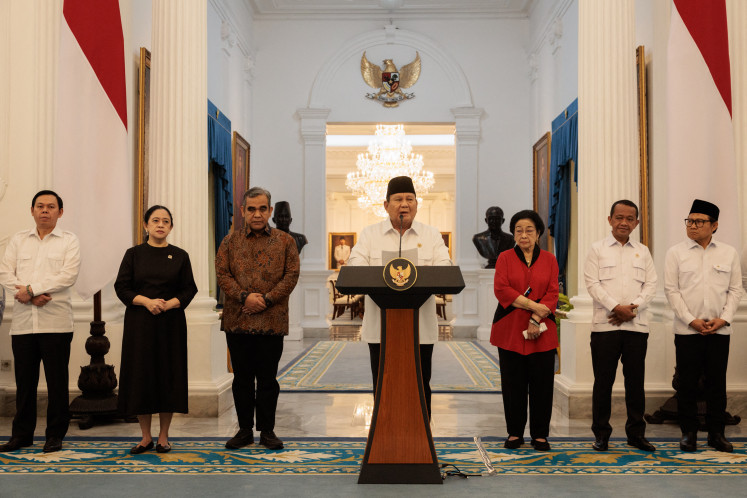Popular Reads
Top Results
Can't find what you're looking for?
View all search resultsPopular Reads
Top Results
Can't find what you're looking for?
View all search resultsNormative vs positive economics in cooking oil market intervention
The shortage as a positive economics prediction should not delegitimate price control as a normative economic decision.
Change text size
Gift Premium Articles
to Anyone
“We economists don't know much, but we do know how to create a shortage. If you want to create a shortage of tomatoes, for example, just pass a law that retailers cannot sell tomatoes for more than 2 cents per pound. Instantly you will have a tomato shortage. It's the same with oil or gas,” said Milton Friedman, a libertarian and Nobel laureate in Economic Science (1976).
Friedman’s remark reflects a contradiction between normative and positive economics. The first describes a decision of normative economics involving a value judgement to control retailers’ prices. The latter describes and explains economic process and predicts, without making a value judgement, a shortage as the undesirable outcome of price control.
The contradiction is pertinent to the recent cooking oil shortage in Indonesia. Normative economics justifies a government decision to control price based on value judgement to protect consumers, while positive economics predicts a shortage as the unintended outcome. Effective market intervention through price control should combine those two basic economic approaches.
The price of cooking oil has been escalating since October 2021. To reduce and stabilize the price, since Feb. 1, 2022, the government has enforced a domestic market obligation (DMO) and domestic price obligation (DPO) for crude palm oil (CPO) and olein on cooking oil producers and a retail price ceiling (HET) for cooking oil.
Conceptually, the measures should run well. Producers of CPO and olein must obey the DMO and DPO, otherwise they cannot export CPO and cooking oil. The price at the producers’ level would drop after raw material costs fall and reduce prices at the distributors and retailers’ level. Consumers can buy cooking oil at the HET of Rp 11,500 (82 US cents) per liter for bulk, Rp 13,500 for simple packaging and Rp 14,000 for premium packaging.
The HET is a price ceiling to prevent price from exceeding a certain fixed maximum, but empirically it has distorted the market. Prior to the imposition of the HET, supply and demand for cooking oil had always been in equilibrium, following the escalating international CPO price, and cooking oil is available everywhere.
Most consumers kept buying CPO-based cooking oil at any price because other types of cooking oil – such as domestic coconut oil or imported olive and canola oils – sold at higher prices. The demand for CPO-based cooking oil is inelastic because there are virtually no cheaper substitutions.



















